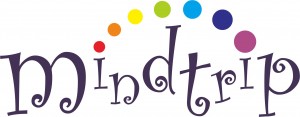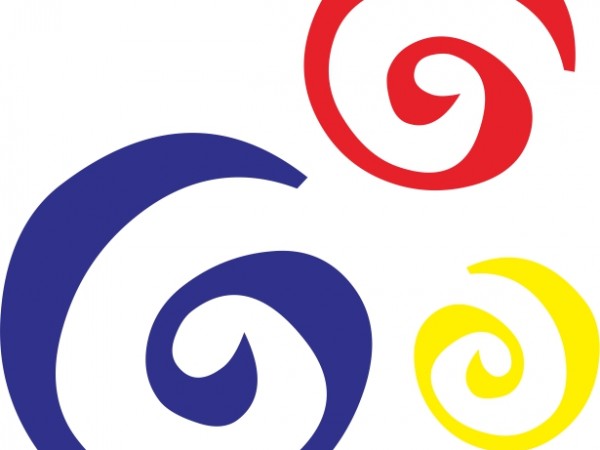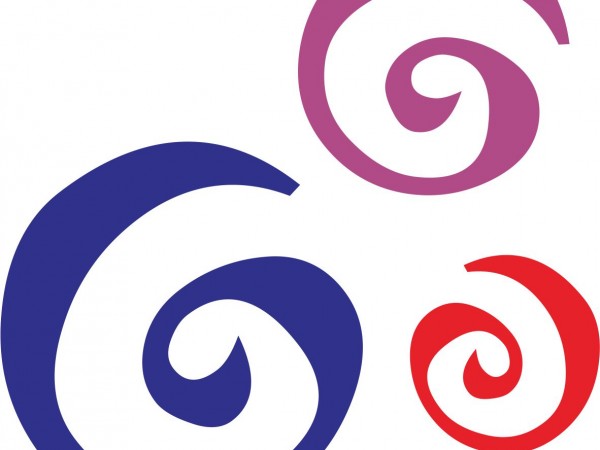Posts from the ‘Business & Transitions Coaching’ Category
It is the time of year for thinking about resolutions and considering what the future might hold. Many of the goals set will last a matter of days and some will last the test of time. Key in thinking about the goals you set yourself at this time of year is whether they are intrinsically motivating to you- are they something you feel you ‘should’ or ‘must’ do rather than something that you are genuinely interested in.
In the following, I have listed some thoughts from the fields of positive psychology and wellbeing to help you in setting yourself up for a happy and healthy 2013:
1. Take a moment to look back at 2012- what were the high points, what made them high? Try and relive them in your mind and savour the moments. By building savouring into your everyday you will start to look out for the good things as they happen. By taking notice of your surroundings and what makes you feel alive you will start to become more and more aware of what feeds you and what matters to you and build more of these experiences into your daily life.
2. Set some goals. By becoming clearer about what you would like to happen we set up a chain of events that create an energy and momentum working behind the scenes on these goals. Trust your creative mind to come up with some ideas rather than feeling that you have to plan everything down to the finest detail. Recognise that goals are statements of intent and that key is the movement towards the goal and the learning along the way, not necessarily whether you achieved it totally or not. Recognise the level of mastery you are obtaining. Finally, make sure that the goals you set yourself inspire you, work to your strengths and move towards something positive rather than away from something negative.
3. Find ways to connect with people in as many ways as you can to help build a support community for you and for them.Try and ensure a balance between virtual connection and physically being present. Give people the luxury of your total attention (minus the technology distractions)
4. Find ways to get physically active in a way that works for you be it running, walking, dancing or gardening
5. Try something new, get curious about something and find out as much as you can. Anything that helps you learn and do something that you haven’t done before. And when you have done that find something else that engages you…
6. Think about how you might give something for the benefit of others. Be it time, money, knowledge, expertise or anything else for that matter. It feels good to help others.
7. Find ways to build creativity into your life, get curious- do something that you have never done before or that surprises you. Do something completely different to what you would normally do and challenge yourself. Once you have mastered something new increase the challenge to maintain your level of stimulation and keep boredom at bay!
8. Give yourself permission to relax, stop, recharge and reflect!
On the day that Bob Diamond resigns I can’t help wondering about how success is defined and its ultimate impact on human and therefore organisational and societal behaviour….
Having worked in both Investment Banking and in the NHS and consulted in a number of other sectors, I have got to experience a number of ‘cultures’ at work. Having made the step into self employment 8 years ago, it makes you have a long hard think about what type of life work you want to craft for yourself, what do you stand for, what type of work do you want to offer and what do you not want to do…In effect how do you want to define your own success, values and ethics.
In organisations, it is very difficult to step out of line with the current way of doing things without being seen as a maverick, a loner or troublemaker. This is why it is so crucially important for Leaders, individuals, teams and organisations to take a step back regularly and look at what they are creating and what success they are chasing. Is it purely for individual gain or for the benefit of our particular group be it a team or an organisation or even a sector? Perspective is key.
It is a tricky balancing act to please many different parties with different priorities. However, if we do not spend time really thinking about what we stand for, the consequences of our actions and how we define success we are likely to be swept away by the current tide…well if they are doing it, it must be alright…yes?…well not always!
In these current turbulent times, it forces us to look at how we define our success and I believe a reflection on our values cannot be a bad thing. Looking at the situations we face and the decisions we make from a view wider than ourselves, considering the impact and consequences at a societal rather than an individual level (for personal gain) may help in navigating us down a path with our integrity intact.
It takes huge courage to admit to either yourself or others that we are struggling or feeling vulnerable… Particularly if you are a leader. It could be that we haven’t met the goals we set ourselves or our team/organisation and are judging ourselves, that we have been made redundant or haven’t got the job we want and think we are a failure or that we didn’t get the performance rating or promotion that others have. Outside of work it could come in many forms around perceived societal measures of success or juggling home and work life.
Core to these feelings of vulnerability are a sense of shame, a feeling that you are ‘bad’ in some way. By its very nature shame drives you to hide and self judge and creates a sense that you are not good enough. It gets further compounded, if you are a Leader, with a sense of needing to be seen to be perfect and in control. Many leaders suffer from a sense of feeling an imposter or that they will be found out as not being good enough…
I invite you to reconsider whether in fact the mental self talk that you are telling yourself is in fact helping or hindering you? Could you actually be good enough already? Recognising that imperfection is being human? That presenting an image of infallibility causes challenges for those that work for you and can drive a culture of pretension and in-authenticity?
To be vulnerable in front of others is in fact to be courageous, and you might want to consider to some that
“Vulnerability is the birthplace of innovation, creativity and change. ” Brene Brown
To see more of what Brene has to say, a researcher specialising in vulnerability and shame, I highly recommend having a look at her TED talk of a couple of years ago and her more recent talk this year.
By being authentic, taking risks, being vulnerable and daring to do it anyway you may well find that others are on that journey too! And, if you are leader of others telling your story, warts and all can help a more authentic and courageous, creative, resilient culture to develop.
Great article about intrinsic and extrinsic goals and their link to a person’s overall happiness. We all need money but it is not that that fundamentally makes us happy- check out the article to find out more about what is driving you and whether that is good for you! money and happiness
 Roger Steare and Pavlos Stamboulides have been researching for a number of years our ethicability-particularly pertinent in these current times: ‘ how we decide what is right and finding the courage to do it’ .
Roger Steare and Pavlos Stamboulides have been researching for a number of years our ethicability-particularly pertinent in these current times: ‘ how we decide what is right and finding the courage to do it’ .
So what are our moral values? How do they influence the decisions you make day to day both within and outside of work and how do they particularly influence you in Transitions in your life…? Are you acting with Integrity, being Authentic? Understanding more about your moral values and what drives you can help you to understand more about the tough dilemmas (and why you are finding them tough) you are facing in both your personal and work life. Once understood it can then give you a springboard for thinking about how best you deal with these conflicts of interest you face on a daily basis.
If you want to find out more, they have just launched a free revised version of their ethicability moral DNA profile. MoralDNA™ is a personality test which reveals our moral values and the way we prefer to make decisions about what’s right. Check it out at: www.moraldna.org
When you complete your profile, you will receive a PDF report that describes your character type. This could be Philosopher, Judge, Angel, Teacher, Enforcer or Guardian. You will see how you score against the average for human beings on three scales that measure how we prefer to do the right thing, both at work, and in our personal lives. You will also see how you compare with others on 10 moral values including Love, Fairness and Wisdom.
This is a topic close to my heart and also that of Susan Cain who has just been in the UK doing a book tour of her new book: Quiet: The Power of Introverts in a World That Can’t Stop Talking. As a coach, I coach a large number of clients who are Introverts in the increasingly more Extroverted world of work. The book talks about what Introverts can bring to the party, how introverts can help themselves and how they and Extroverts can capitalise on their strengths.
To find out more about what she has to say have a look at the following TED talk:
or have a listen to an audience interactive talk a few weeks ago at the RSA Susan Cain at the RSA
or have a look at the book which just launched in the UK.
Are you Implementing digital solutions?Restructuring? Outsourcing? Going through a merger? Reorganising and instigating a redundancy programme? Something else?
Mindtrip has experience of helping both leaders and staff to capitalise, adapt and survive through change and transitions. We will work with you to build and deliver effective behavioural change strategies that complement and enhance your business change. We can also deliver facilitated workshops along with individual and team coaching sessions that enhances understanding and the impact of behavioural change and transitions.
We use evidence based approaches, models and techniques that are embedded in the behavioural sciences including social and cognitive psychology and behavioural sciences as well as latest thinking from neuroscience and psychological coaching.
We help organisations plan for and for people to understand the emotional and social impact of transitions, help them re-assert control and open up 2 way communication and design.
For those leaving an organisation we can offer tailored careers transitions coaching and transitions workshops that focus on helping people ‘get back onto their feet’, process and understand the emotions of the transition that they are going through and support them on finding the best next step for them in their career.
Case Study
 We worked with London TravelWatch at a time of large change helping both the staff and managers process and deal with the impact of a large downsize. We worked with them to deliver two all staff workshops around understanding and dealing with change and ensuring consistency of approach in the new organisation going forward. This latter piece of work focusing on developing the organisations values and understanding how they are lived day to day.
We worked with London TravelWatch at a time of large change helping both the staff and managers process and deal with the impact of a large downsize. We worked with them to deliver two all staff workshops around understanding and dealing with change and ensuring consistency of approach in the new organisation going forward. This latter piece of work focusing on developing the organisations values and understanding how they are lived day to day.
Thanks for delivering such a light touch but powerful workshop yesterday. It did just what I hoped
Chief Executive London TravelWatch
![]() Over a 12-18 month month period I designed and assembled a team of 5 consultants, to deliver a large cross departmental change programme “Good to Excellent’ across support services with the focus on building a sense of community and customer service for internal and external clients. The design had 4 phases including workshops and skills boosters.
Over a 12-18 month month period I designed and assembled a team of 5 consultants, to deliver a large cross departmental change programme “Good to Excellent’ across support services with the focus on building a sense of community and customer service for internal and external clients. The design had 4 phases including workshops and skills boosters.
To read more about the programme and its design please click : Herbert Smith Good to excellent Programme This was written by the OD department at Herbert Smith for an award submission.
I have been a coach since 2000 and use a tailored mix of cognitive behavioural coaching, positive psychology, mindfulness, heartfulness (kindness and compassion) and creativity based approaches, we will work together to see how you perceive your challenges and how different perspectives can help you to overcome and/or accept them. We will then put this into a change action/intention plan with the ultimate goal of you becoming your own coach.
My approach to coaching and leadership development focuses on building on an individual’s strengths and how a leader can best bring out those strengths in themselves and others to build engagement, motivation and results. We will also think about these strengths in relation to what the organisation needs of them and how this balances with external pressures that are being brought to bear on the individual and the organisation. I like to mix up my approach, and where appropriate in helping leaders deal with change, ambiguity and complexity, we may use awareness and acceptance approaches such as mindfulness, compassion, the creative arts and walking and the outdoors. I have a particular interest in working with those that are going through transitions and I also work privately as a careers coach.
Want to know what some of my clients have said about working with me, what to expect? Click helping you decide
I am able to design tailored leadership development programmes that are centred around helping current and emerging leaders understand where they are in their own personal development journey and how that aligns with what the organisation and wider society needs of them. The implementation of the programme will be tailored to the needs of the organisation and can be offered as a blended solution of one to one coaching, workshops and skills boosters combined with ‘bibliotherapy’, mentoring and action learning groups.
Please click the links to find out more about the inspirations and our approach that inform mindtrip’s coaching.
Case studies
![]() I coached a number of people over a 4 year period at Twinings. Covering those in more senior roles and those that were transitioning into manager roles. Each coachee had a tailored programme based on 3 way contracting for objective setting over a number of months with often a follow up/ refresh session after an appropriate length of time. I worked with people in procurement, marketing and finance.
I coached a number of people over a 4 year period at Twinings. Covering those in more senior roles and those that were transitioning into manager roles. Each coachee had a tailored programme based on 3 way contracting for objective setting over a number of months with often a follow up/ refresh session after an appropriate length of time. I worked with people in procurement, marketing and finance.
Heather coached me over a 2.5 year period through a career transition into a leadership role and returning to work after having my first child. Her support has been invaluable during this time. Heathers style is relaxed and informal putting you at ease straight away. She is able to navigate any topic required with the greatest of ease moving seamlessly from one learning to another providing tools and resources with the best fit for each individuals learning style.
 I have coached members of the senior team at St Albans High School for girls. Either helping them to transition into new leadership roles and/or to help in their career progression
I have coached members of the senior team at St Albans High School for girls. Either helping them to transition into new leadership roles and/or to help in their career progression
Thank you for all help with clarifying my priorities and future plans. I found our sessions hugely empowering.
Senior Teacher on Leadership Team
One of the keys to change is developing self awareness. Once you understand more about your motivations, personality, skills and strengths it can help you to move towards your goals but also help in understanding others. From an organisational and team perspective, I have found that raised awareness through the use of such instruments, can bring understanding and greater tolerance and a reduction in conflict.
Personality Inventories and Self awareness tools
I am level B accredited practitioner with the British Psychological Society in a number of well known personality inventories such as the MBTI and FIRO-B and am qualified in two specialised Leadership and strengths based inventories that are detailed below. I also use many other available instruments that are well reviewed and evidence based such as the Big 5 personality instrument and I also use extensively various positive psychology specialised inventories including personal resilience, emotional intelligence, satisfaction with life and self esteem instruments.
Leadership Development
The Leadership Development Framework describes sequential stages of development (Action Logics) through which adults may progress during their lifespan. Crucially, different leadership capabilities are evident at each successive Action Logic – leadership transforms with each step. Extensively researched and validated, it describes what promotes and impedes development to each successive stage.
I am fully qualified practitioner in the Leadership Development Profile. The Leadership Development Profile reveals the action logic of a leader and we can then use it to build a personal developmental agenda. Knowing your own current ‘action logic’ opens up two possibilities: on the one hand, you may decide that consolidating your behaviours and capabilities at your current stage would be of greatest value to you and your organisation. On the other, you may be interested in creating the potential for transformational change to a new stage.
Your Strengths
I am accredited in this world-leading strengths assessment and development tool which has been taken by 40,000+ people around the world. It assesses 60 strengths according to the three dimensions of energy, performance and use, making it truly unique and distinct from the typical one-dimensional strengths test. These three dimensions are then used to identify where your strengths lie. The report gives you a unique insight into your strengths and weaknesses, helps you distinguish your strengths from your learned behaviours, provides you with a strengths language that enables you to share your strengths with others and helps you think about how to use your strengths to achieve your goals.
Organisational instruments
I often find taking a benchmark of where we are is a useful segway into Organisational Development work and have used happiness at work surveys as well as my own team based surveys and reviews to create a benchmark. I am also well versed on organisational people surveys and can facilitate sessions that bring these to life to create forward momentum.
I bring a strategic consultancy approach to team development, designing tailored events for 5-100 people focusing on where you are now, where you want to be and what you need to do to move forward. Focus will be both on the task, process and people aspects of the team’s development be it development within an intact senior leadership team or getting teams to work effectively together across an organisation.
Mindtrip delivers a variety of approaches to team development using coaching and creative techniques, analysis from instruments and surveys as well as the latest academic research and thinking from business schools.
Case Study
![]() Prior to Herbert Smith’s merger, I worked over a period of Ten years with the Information and Systems department. During that time I worked with them to build a sense of team within the Leadership team, each sub team within the department, across the overall department and also inter relationships between the department and other departments they worked closely with. Work included
Prior to Herbert Smith’s merger, I worked over a period of Ten years with the Information and Systems department. During that time I worked with them to build a sense of team within the Leadership team, each sub team within the department, across the overall department and also inter relationships between the department and other departments they worked closely with. Work included
- Consulting, designing and facilitating tailored nine yearly top team leadership offsites and 1:1 coaching
- Designing and facilitating intra departmental team events
- Designing and facilitating a series of tailored department wide team leader management development
- Designing and facilitating an all department conference
We needed a facilitator to help us in the critical task of coalescing the senior management team. Heather did exactly that and lived up to out high expectations.
Group Chief Information Officer, Herbert Smith LLP (now retired)






